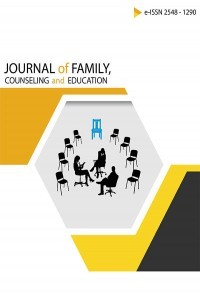Cognitive Behavior Therapy with Couples and Family Relationships
Cognitive Behavior Therapy with Couples and Family Relationships
Family conflicts results in divorce cases in the modern societies increasingly. A research by Christensen & Heavey (1999) showed that there is an increasing satisfaction level and success in the getting therapy as a couple when it compares to do not getting therapy (Dattilio, 2010). There are two purposes in this research generally: one of them is to find out the importance of family and couple therapy in the field of therapeutic approaches. And the other aim is to study couple conflicts and family relationship with cognitive behavior therapy. It was seen that cognitive theory and behavioral therapy can be discussed both separately and together depends on the problems in the family relationships. However cognitive behavior therapy is powerful and successful when it integrates with appropriate modals during the treatment of couple conflicts (Dattilio, 2010).
Keywords:
Couple, family, cognitive behavioral therapy,
___
- Dattilio, F. (2005). The restructuring of family schemas: cognitive behavior perspective. Journal of Marital and Family Therapy. January 2005, Vol. 31, No: 1, 15-30.
- Dattilio, F.M. & Epsteion, N.B. (2005). Introduction to the special section: the role of cognitive behavioral interventions in couple and family therapy. Journal of Marital and Family Therapy. January 2005, Vol. 31, No: 1, 7-13.
- Dattilio, F.M. (2010). Cognitive behavioral therapy with couples and families: A comprehensive guide for clinicians. New York: The Guilford Press.
- Dobson, K.S. (2010). Handbook of cognitive behavior therapy (3rd ed.). New York, NY: The Guilford Press.
- Friedberg, R. D. (2006). A cognitive behavioral approach to family therapy. Journal of contemporary psychotherapy. 36:159–165.
- Gurman, A.S. (2008). Clinical handbook of couple therapy (4th ed.). New York: The Guilford Press.
- Leahy, R.L. (1996). Cognitive behavioral therapy: Basic principles and applications. U.S.A.: Institute for Cognitive Behavior Therapy.
- Osburn, K.A. (2011). A Cognitive Behavioral Approach To Family Counseling. Liberty University Online.
- Padesky, C. & Greenberger, D. (1995). Evinizdeki Terapist: Klinisyen el kitabı. (D. Dağyaran, Çev.) İstanbul: Altın Kitaplar Yayınevi.
- Seligman, L. & Reichenberg, L.W. (2010). Theories of counseling and psychotherapy. Boston: Pearson.
- Yayın Aralığı: Yılda 2 Sayı
- Başlangıç: 2016
- Yayıncı: Eyüp ÇELİK
